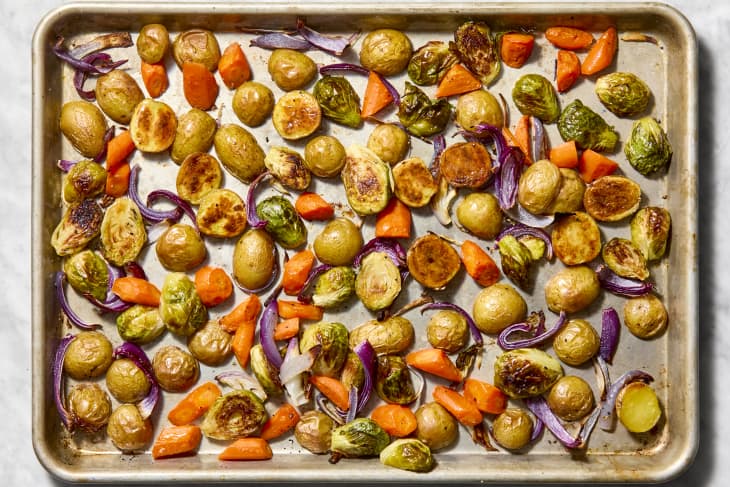
There are plenty of environmental and social arguments for increasing the proportions of plant-rich dishes on your menu, but in this article, The Sustainable Restaurant Association looks at the benefits it can bring to your business – and your bottom line.
1. REDUCED COSTS, HIGHER MARGINS
Ingredients for plant-based dishes are generally cheaper than meat and dairy. However, well-crafted, genuinely tempting plant-based meals can often be placed at a similar price point as their animal-based counterparts, meaning bigger margins. Making a greater proportion of your menu plant-based may even have a positive effect on sales: in 2018, research conducted by Forbes found that restaurants that had switched to vegan menus reported increased sales and a boost in social media followings.
2. MORE MONEY FOR BETTER MEAT
When you’re saving money on plant-based ingredients, it makes it financially easier to review the quality of the meat you do serve in terms of environmental impact and animal welfare. Switching to better-quality meat – for example, organically-certified, or from a farm that uses regenerative agricultural methods – can help you justify a higher price point while also improving your environmental sustainability.
3. INCREASED CREATIVITY
Building an interesting and delicious plant-rich offering often requires more thought than when meat, fish and/or dairy are automatically at the centre of the plate. This can encourage greater creativity and innovation in your kitchen team, resulting in a more unique, memorable and modern menu selection.
4. REDUCE YOUR EMISSIONS
For the hospitality sector, the most significant and troublesome emissions are the ‘indirect’ ones that lie throughout the supply chain, known as Scope 3 emissions. Many of these are embedded within your ingredients – meaning that decreasing the amount of red meat you’re buying and serving will have a big impact when it comes to reporting and reducing your emissions.
5. LOWER YOUR IMPACT IN OTHER AREAS
Beyond emissions, animal agriculture is responsible for other negative environmental impacts including pollution, changes in land use and deforestation. Producing meat also requires very high volumes of water. When you reduce the amount of meat in your orders, you’re also reducing your impact in these areas.
6. MEET A GROWING DEMAND
Today’s customers care about sustainability, and that influences the foods they choose: global sales of plant-based foods continue to see rapid growth, driven by growing concerns over animal welfare issues, the environmental impact of food production and future food security. What’s more, plant-based eating is no longer limited to those following full vegetarian or vegan diets: GWI reports that the number of Europeans identifying as flexitarian has risen by 13% year-on-year since 2021. Putting more high-quality, creative plant-rich dishes on the menu will help your restaurant meet this growing demand and give your customers what they crave.
7. SATISFY THE ENTIRE TABLE
These days, the chances are that any large group of diners will include at least one meat-free eater. If your plant-based offering is too small or too boring, you could lose valuable group bookings as a result. Menus with more plant-based options can appeal to a broader market, including vegans, vegetarians and flexitarians, environmentally aware and health-conscious consumers and those with egg or dairy allergies or intolerances. With many vegan recipes also cholesterol-free and lower in fat than those with meat, they’re also suitable for those with heart or cholesterol issues.
8. IMPROVE YOUR REPUTATION
As with every measurable and transparent part of your sustainability work, dishing up more plant-based options can help improve your brand’s reputation. Make sure to communicate your efforts on your website, social media and/or menus, and provide training for your staff so they’re comfortable talking about why you’ve increased your number of plant-rich dishes.
Find The Sustainable Restaurant Association on Instagram and Linkedin and sign up to our newsletter for more updates, events and insights from our global network.
